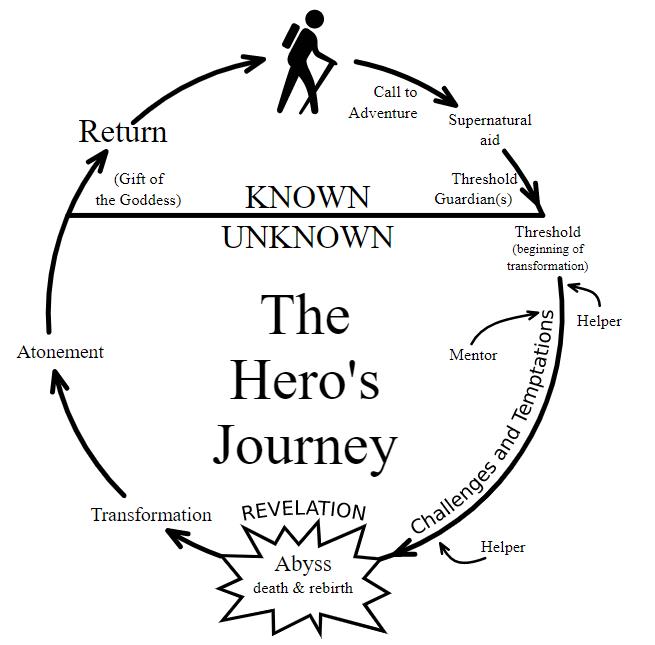The Rhythms and Rituals (our Being and Doing)
Bongi: Updated. Edited for plain english, readability and a more logical narrative. Developed Rhythms to link to supporting future DHO's more clearly and succinctly + incorporated recent proposals/potential.
Rhythms
Over the first few months of its existence, Samara created these Rhythms:
Wednesdays: Roots call (governance, funding, compensation, etc)
Thursdays: Trunk call (overlap and alignment of Roots and Branches
Fridays: Branches call (regional pilots, outreach, engagement, etc)
Plus various pod calls and ad hoc calls, often but not always between noon and 5pm UTC.
Regular call Rhythm:
- Each call starts with a minute of silence to settle into the space.
- The beginning and end of the minute is marked with a sound from a singing bowl, sacred rattle, or similar.
- This is followed by check-ins, so we acknowledge and own any tensions or joys that we are bringing into the collective field (and if these are not named, there is a good chance that our resident shaman, Justin, will pick them up and name them anyway - we appreciate you, Justin!).
- A facilitator is then voted in unless a longer term regular facilitator was already chosen. This is done with awareness of the check-ins and opt-outs aired. The method is everyone typing a name and a countdown with simultaneous sending. There is a round of check-outs at the end of the call.
The organization faces the challenges of reconciling many interconnected variables:
- Time zones (from New Zealand to California)
- Tolerance for keeping unusual hours
- Commitments to family, self-care, other projects, etc.
- The necessity of paid work outside of Samara pending remuneration within Samara
- Varying needs for forward planning ("let's have a meeting now!" / "I can fit you in a week on Tuesday")
- Varying needs for yang-time and yin-time ("I'm available for action whenever needed" / "I can be active for a while, but then need time to consolidate and/or do deep work")
Emerging patterns and considerations for future Rhythms and Rituals:
Like Seeds, Samara recognizes the waxing moon for and contraction. The waxing moon stands for expansion/activity and calls for yang. The waning moon stands for reflection/consolidating and calls for Yin. Samara hopes to start using this Rhythm in some ways, but to plan projects on a longer cycle. Our aim is to discover the rhythm that will emerge to best facilitate:
- Our creative and project needs.
- Our emerging purpose.
We also want to discover which are best made regular and which to apply at trigger events. There are current proposals to use dynamically applied sensing sessions and metrics. These aim to check when the threat response is starting to increase in the group. This is not simply a case of changing the reasons external to the individual to lessen the felt threat. It is also about having explicit agreed processes to create safety and learning and growth out of each opportunity.
Having clear pathways to respond, in the right way, at the right time: these are models and evolutions we are sensing into.
At the moment there is discussion about using inspiration from the SCARF model (Status, Certainty, Autonomy, Relatedness, Fairness). The aim is to:
- Create processes prevent a threat response in an individual on a group level.
- Agree standard learning processes for members to foster the most growth and understanding out of tensions.
The Hero's Journey is being proposed to structure and judge the right time to use different tools. This could help Samarans to sense into and align around the stages we are going through. It would help members and different sub-groups to respond with awareness and acceptance of the game rules of each stage.
Pulse checking people in this way (which builds on Hypha's 'org scan' process) will be a powerful way to channel rhythms to create safety. Distinguishing external factors in the presence of high cognitive load or project sprints/deadlines is a key area of research.
This dynamic way of adjusting rhythm:
- Still gives structure and direction
- Explicitly encourages a sense-and-respond process
- Could prove useful in allowing flexible, yet fundamentally patterned tools for new DHO's.
Joachim has pointed out that Samara does most of its work within calls, while Hypha uses calls more to verify work done asynchronously in between calls. In the future, Samara may wish to shift more towards this pattern. We could explore whether it seems more effective and productive, and/or enables Samarans further to the east and to the west to catch up on some sleep (!).


